The School Run
Kampong Phluk, Cambodia
TRAVEL CURIOUS
The way in which we all experience travel is evolving. ETG travellers are increasingly seeking out the authentic stories that lie behind the glossy brochure images, and which, we like to say, reveal the fabric of a destination. So, inspired by your own travel moments, we sought out some of the very human stories that lay behind them. We wanted to share them with you; to inspire you to start thinking about your next travel story and inspire like-minded friends and family members to do the same.
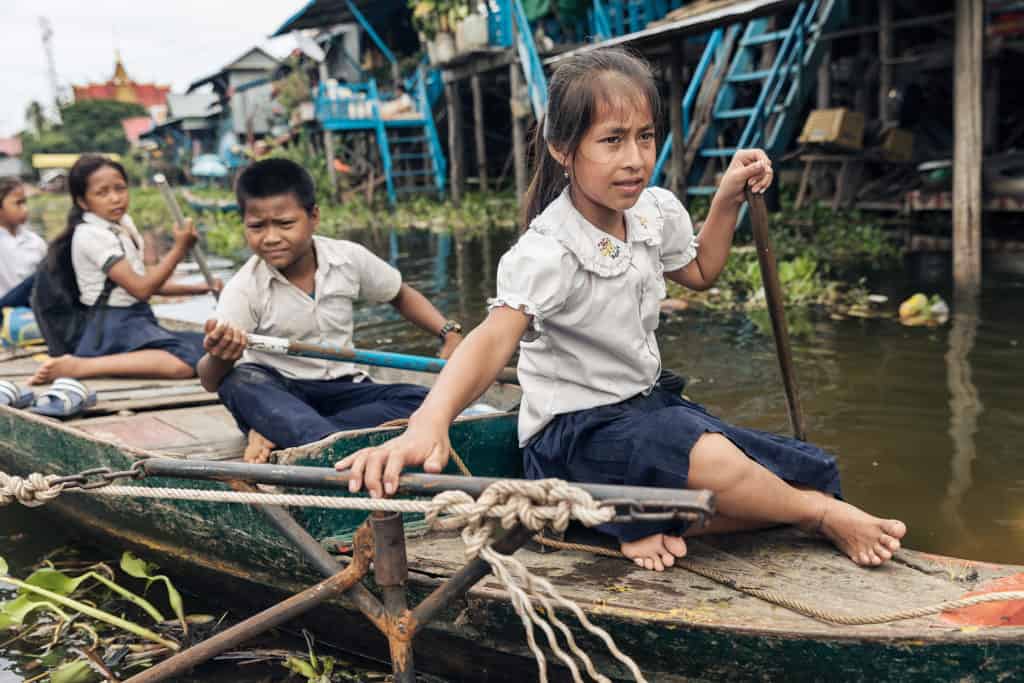
When there is no other way to get to school
They paddle along in twos and threes, children as young as 7 taking themselves to school by boat in their watery world. With the breath-taking backdrop and peaceful scenery adding to the beautiful early morning atmosphere, they give only a cursory glance to us visitors, early morning risers with the privilege to join in this morning ritual.
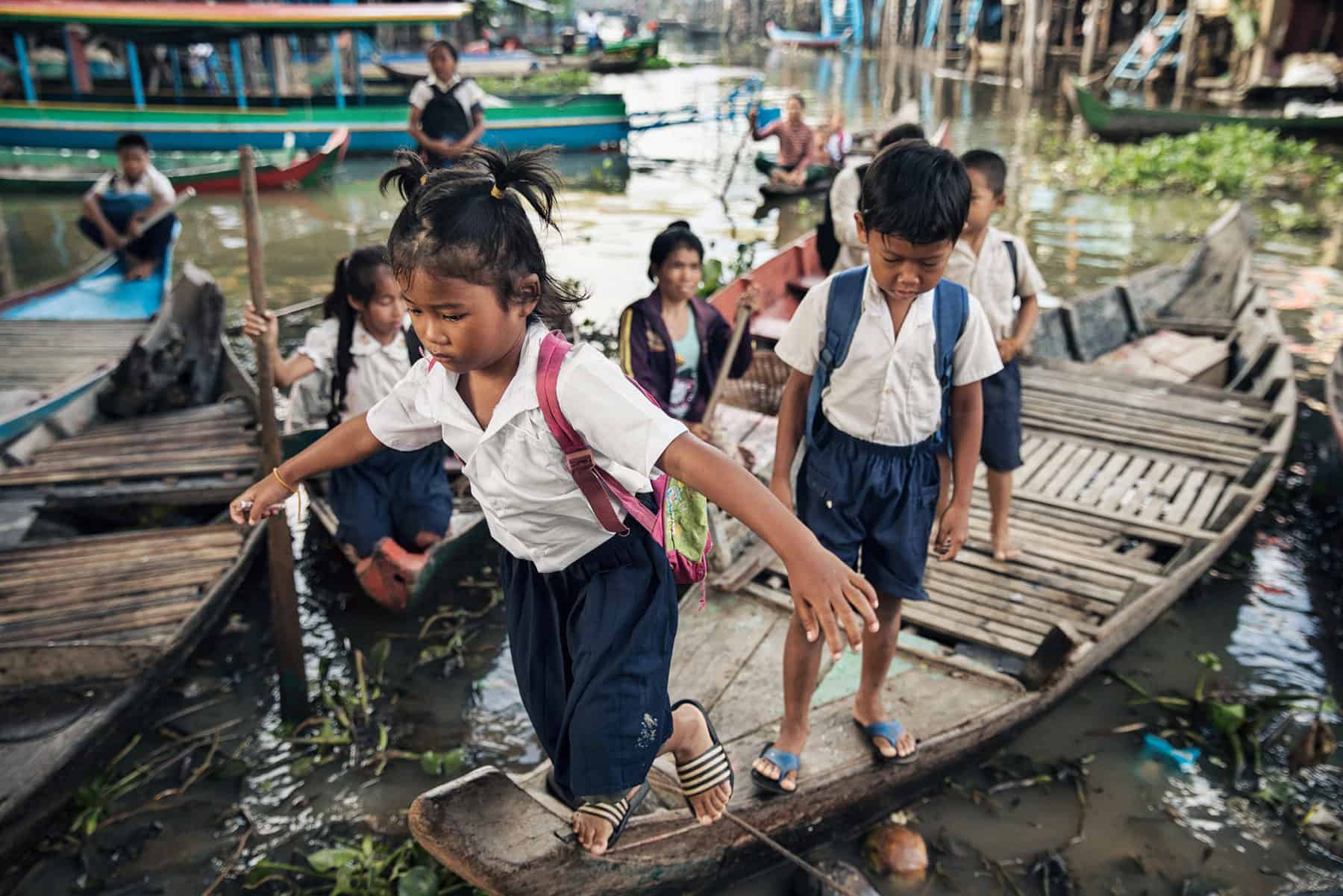
Sunrise on the Tonle Sap
Chugging gently around the Tonle Sap at dawn is one of our favourite experiences in Asia. It just feels so special to witness, if only for a morning. From 5-am the Tonle Sap villages come alive: kids going to school, fishermen to work and fruit and veg to the floating markets – all on the water. We wanted to capture the strange calmness of the whole experience. The light is glorious and it brings alive the full colour palette of the stilted villages. Just post-monsoon is a wonderful time to visit and there are so many stories to witness and discover along the way.
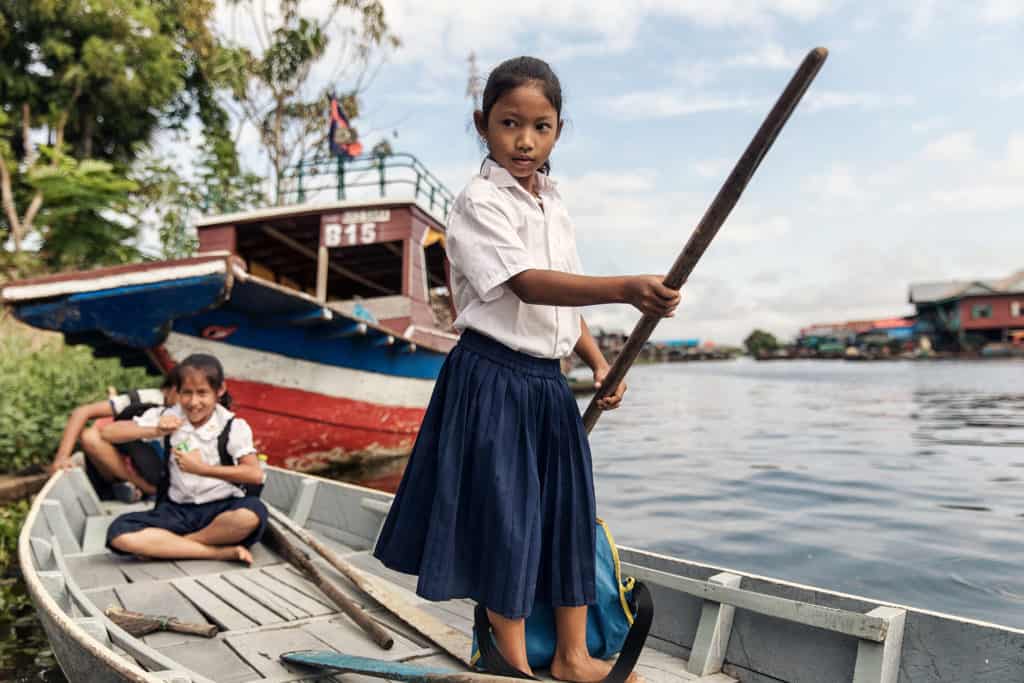
From the stilted villages around the Tonle Sap, kids have to row to school; there is no other choice. It’s an incredible sight, but for them it’s completely natural and they learn from a very young age. The teachers and parents row the very young kids, but from about 7 years old and upwards, they generally take themselves in convoy. It’s their school run! To catch a glimpse of this, you have to rise early as school starts around 7am and finishes around 1pm (to avoid the heat of the day). There will be hardly any tourists up at that time and it really is a special experience.
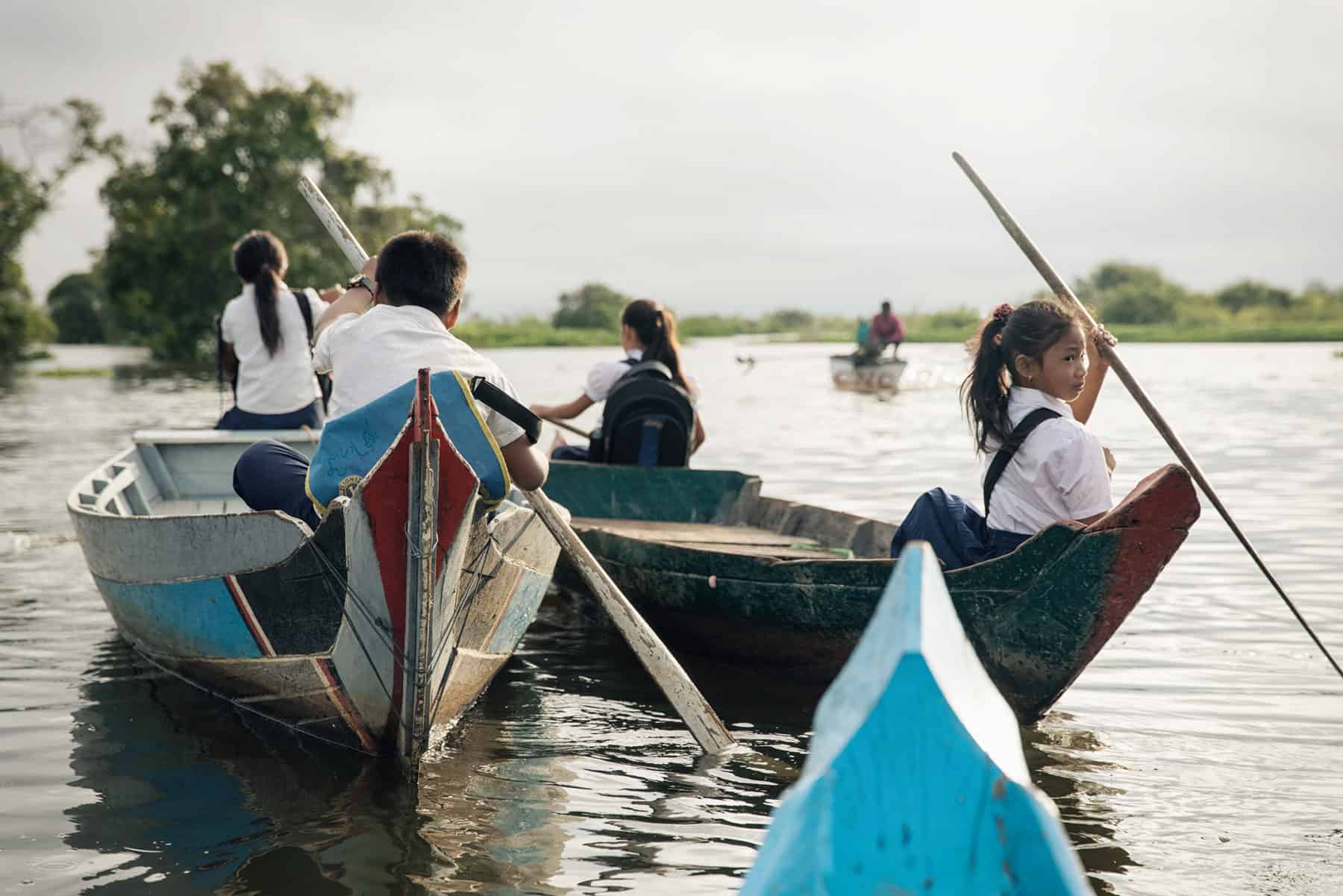
Meet Mr Hong Yan
Let’s not rose-tint too much, though. Behind the picturesque scenery, life is sometimes tough for the people of the Tonle Sap. The water level, on which they depend for their livelihood, is variable, and ever more so since damming began higher up the mighty Mekong River (which feeds the Tonle Sap). If you’re not a fisherman, then tourism is probably your best chance for an adequate income. It’s a decent wage during the busier season – at least, if you can find the work.
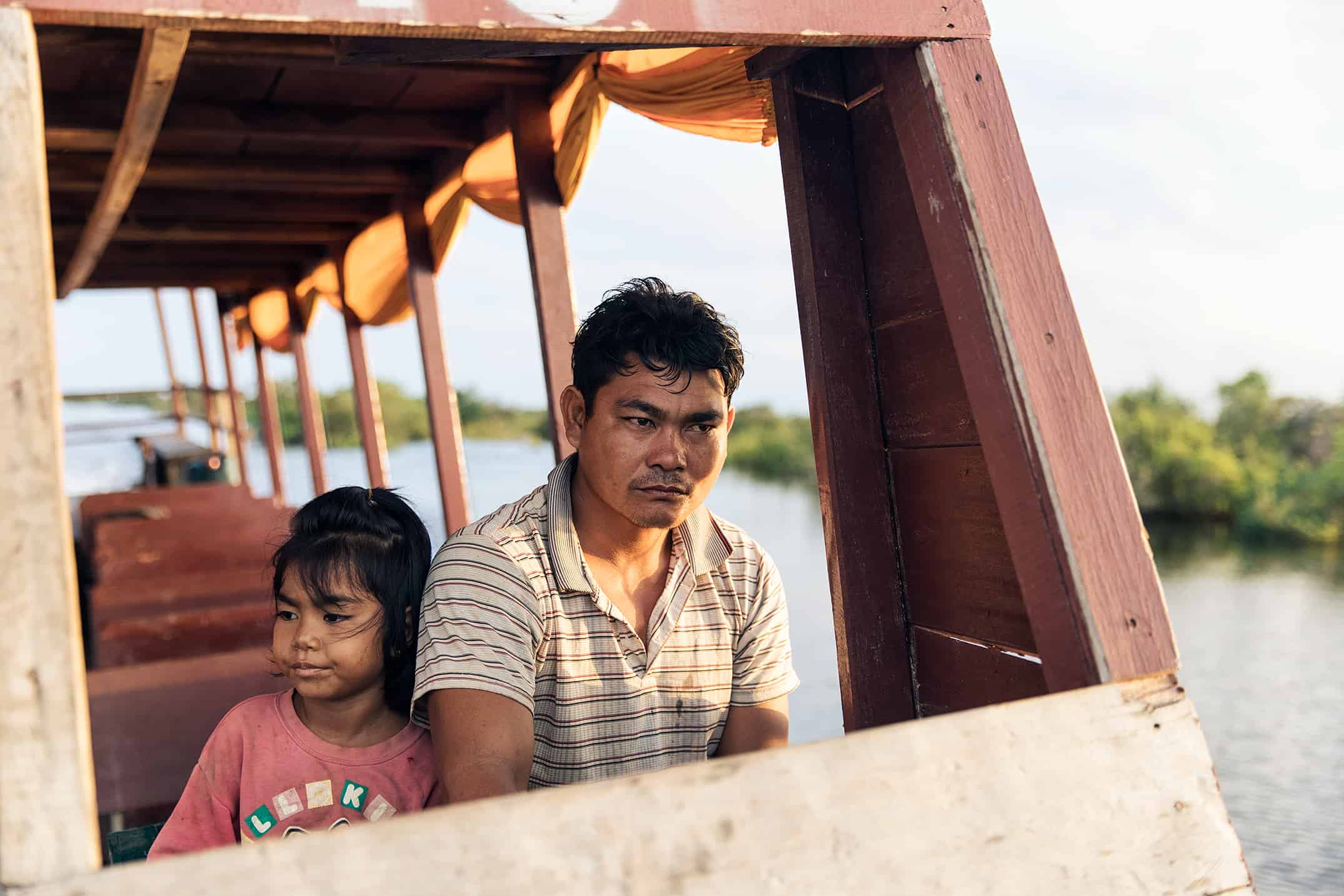
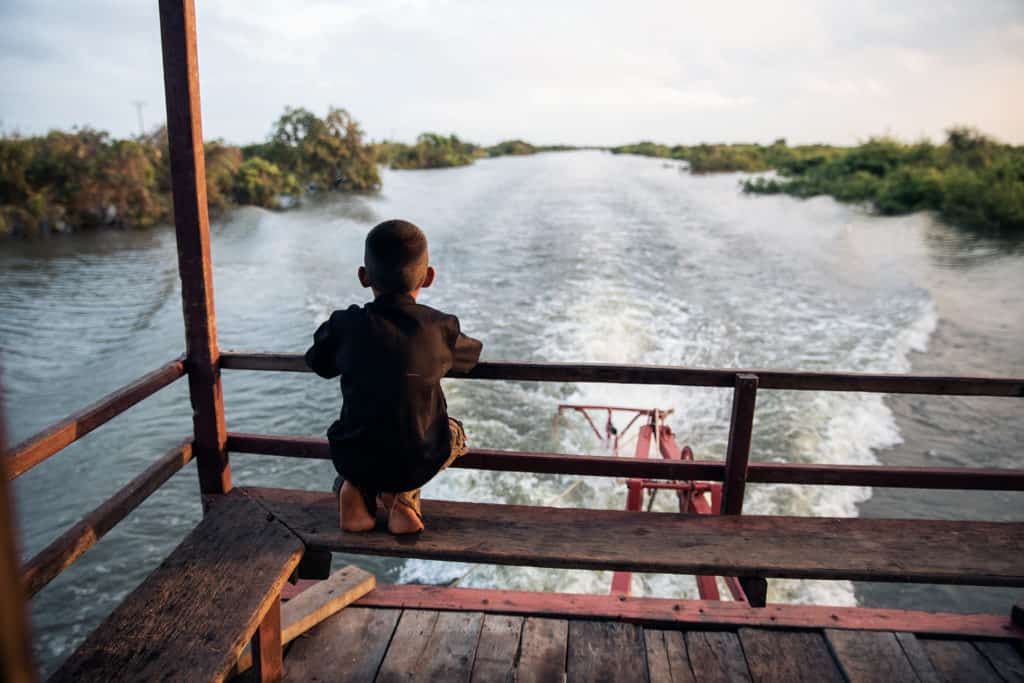
It was a family affair as we cruised around the Tonle Sap as our boat driver, Mr. Hong Yan, had brought his two children. When we asked why he said that school had just started, but they were scared to go and wanted to stay with him. Behind what he said, we guessed there was a tough predicament, especially as tourism is his main source of income.
In peak season he told us that he could be a boat driver every day and earn the equivalent of £27 a month wage along with tips (ETG automatically include an extra payment in the upfront costs to top up wages for boat drivers such as Mr Hong Yan). In the lower season, he would do the odd bit of fishing and help his wife cook food to sell which he would deliver on the boat. That would earn them about £25 a month too. His kids are called Yan Somphos who is 6 and Yan Sokmeas who is 5. We were grateful for our time with Mr Hong Yan and enjoyed his company, but didn’t like to pry further.
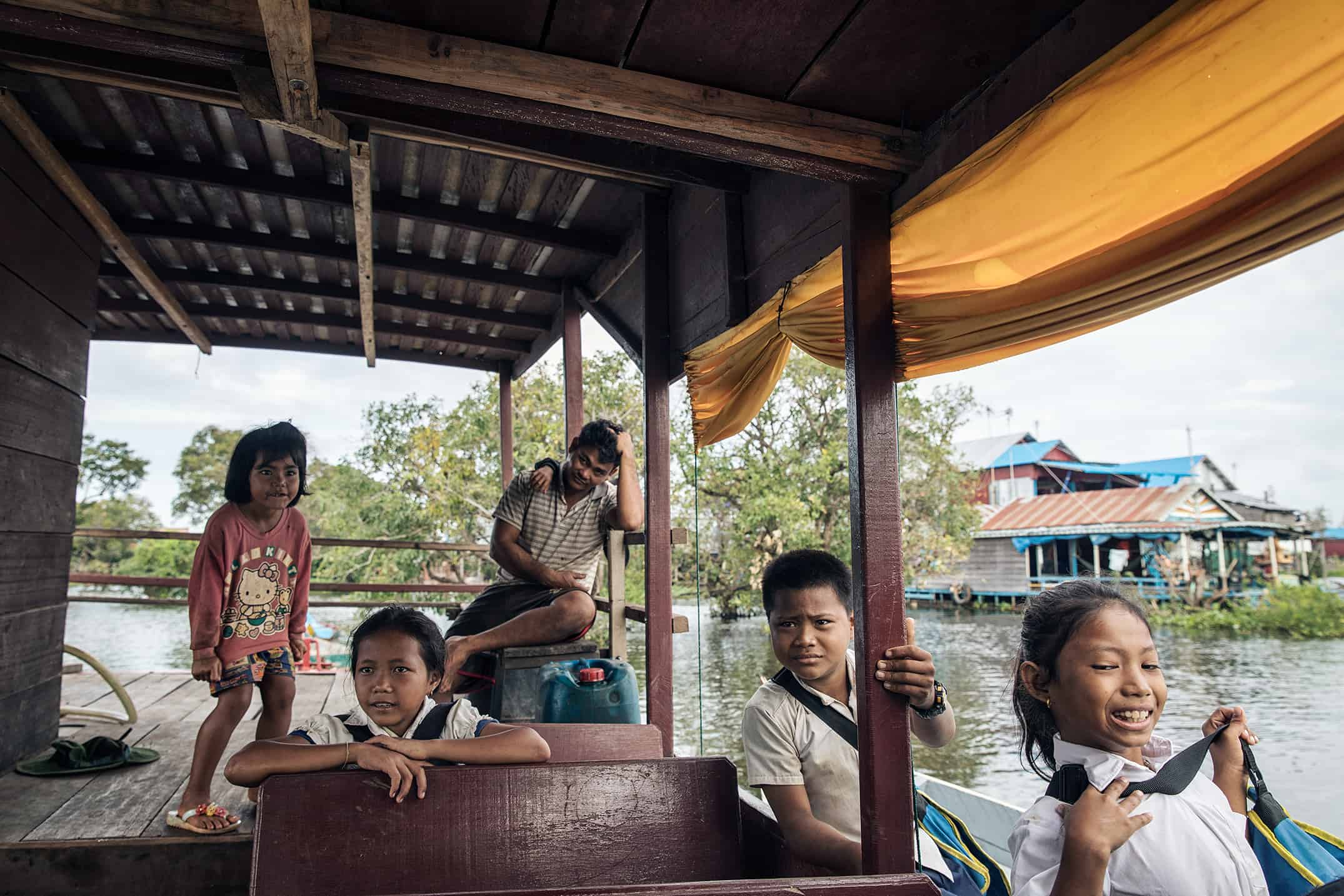

We don’t believe in standing still. Watching the world go by through a window. Hearing it through the stories of others.
You want to be in it, out there. Asking questions and finding answers. Finding yourself in worlds unknown. Finding the path less trodden. Meeting people with a different story to tell.
Just ask why, what, how, who? We’ll never stop helping you find the answers.
Our travellers come home with stories to tell, memories to keep and new ways of seeing their lives around them. That’s what happens when you truly connect with a destination.
FREE YOUR CURIOUS SIDE WITH EXPERIENCE TRAVEL GROUP


FREE YOUR CURIOUS SIDE WITH EXPERIENCE TRAVEL GROUP


